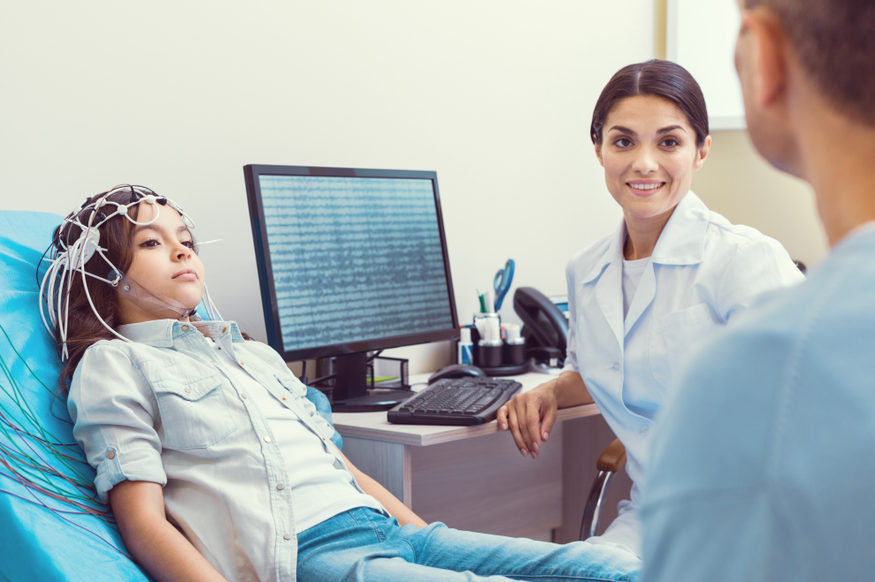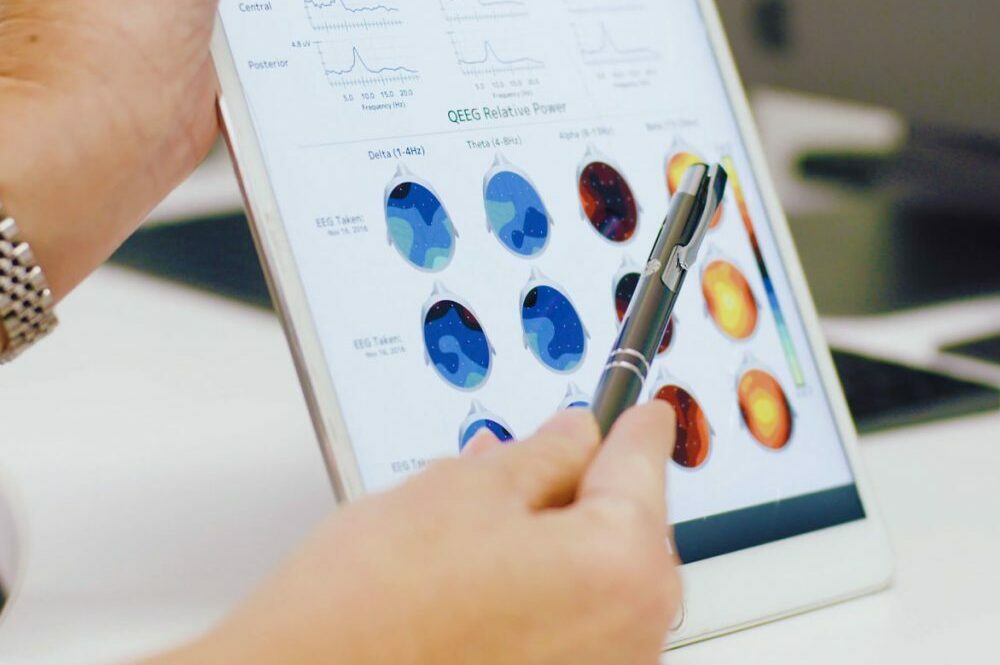
Learning Disorders
Learning disorders such as Dyslexia, Agraphia, Auditory Processing, and others can have devastating effects on a child, causing them to feel alone and left out.
Intelligence is not lower for children with learning abilities, but they can feel like they are not as smart as others because learning disabilities can place them at the bottom of the class.
MeRT is a drug-free, non-invasive treatment that can help!
These same issues can affect adults and teens. Dyslexia tends to be genetic. Risk factors in the environment can also cause dyslexia, and complications can result in social problems, withdrawal, low self-esteem, trouble learning, and trouble reaching full potential because of reading/language impairment.
Dyslexia, A Common Learning Disorder
Dyslexia, also called reading disability, affects parts of the brain that process language. Most kids can succeed with tutoring or a specialized education program. Emotional support can also go a long way in supporting a child with a learning disorder.
Often, you may not notice anything different with your child until they enter school and the teacher realizes that your child has a problem when they start learning to read. Signs to watch for which may show your child has dyslexia are:
- Delays in talking
- Reversing sounds in words and forming words correctly
- Difficulty remembering letters, numbers, and colors
- Issues learning nursery rhymes
- Reading below others in the classroom
- Not understanding what they hear
- Inability to sound out words
- Problems spelling
- Difficulty with math
Aphasia, Another Learning Disorder
Aphasia is a condition that affects the ability to speak, write, and understand both written and verbal language. It usually occurs after a traumatic brain injury or a stroke.
However, it can come on more slowly due to a brain tumor or progressive and degenerative disease in the brain. The extent of disability depends on where and how bad the brain damage is. Aphasia is usually a symptom of another, more serious condition.
Symptoms of Aphasia:
- Speaking in incomplete or short sentences
- Using sentence structure that makes no sense
- Having trouble understanding others’ conversations
- Saying words that are unrecognizable
- Writing words that make little to no sense
The different types of aphasia are nonfluent, fluent, and global. These have different symptoms and degrees of disabilities depending on where the brain damage has occurred.
Aphasia can seriously impair quality of life and lead to depression, relationship problems, and day-to-day function.
The most common cause of aphasia is brain damage from a stroke. However, it can also be caused by a traumatic brain injury, tumor, infection, or a degenerative process. Other instances where acute aphasia can happen include seizures, transient ischemic attack (TIA), or migraines.
The causes of Auditory Processing Disorder are complex. However, many physicians believe it can occur after an illness, such as chronic ear infections or meningitis. Some patients who have MS (multiple sclerosis) can also develop APD. Premature birth weight, a traumatic brain injury, and genetics may also contribute.
Auditory Processing Learning Disorder (APD)
People afflicted with this disorder do not have trouble hearing. Instead, they have problems with small nuances of words that are being said to them. Therefore, the brain doesn’t hear the words exactly as spoken. For example, you might say, “Please eat your cheese,” but the brain may hear, “Bees meet your knees.”
APD usually starts in childhood, but some can develop it much later. Boys are more likely to have it than girls. Obviously, it can cause learning delays, so additional help may be needed in school.
Because APD skews the way a person hears things, they may also have trouble:
- Listening to music
- Having conversations
- Understanding what people are saying, especially when there are other background noises, like a loud restaurant
- Correctly understanding where particular sounds are coming from
- Remembering oral instructions
MeRT for Learning Disorders
Here at the Brain Treatment Center Dallas, Dr. Miller and his staff offer MeRT® for learning disorders. MeRT is a unique and improved version of TMS (Transcranial Magnetic Stimulation). This is a much more individualized approach to brain modulation, tailored to the patient’s needs based on frequency, location, and power used.
MeRT stands for Magnetic e-Resonance Therapy. This innovative treatment protocol combines technologies of Transcranial Magnetic Stimulation (TMS), Quantitative Electroencephalogram (qEEG), and Electrocardiogram (ECG/EKG) to analyze and formulate treatments tailored to each patient’s unique brain pattern.
TMS modulates the brain’s electrical activity by using magnetic fields that pass through the scalp from an electromagnetic coil. However, it is important to note that TMS is a generalized approach to neuromodulation because it can only target a single location in the brain with a single frequency. Our MeRT is highly individualized as to frequency and location based on initial thorough testing and evaluation.
Treatment for a learning disorder usually lasts 4-6 weeks. Appointments are 30-45 minutes, Monday through Friday. Generally, the patient will begin to notice improvements during the first week.*
Contact our New Patient Coordinator
for more information. Or fill out the form below.
Our Medical Director, Neurologist Dr. Miller
Dr. Spencer O. Miller, a Neurologist in Dallas, Texas, is the owner and Medical Director of Brain Treatment Center Dallas. He received his medical degree from the University of Mississippi School of Medicine and has been in practice for 12 years. He spent five of those years in the US Air Force, where he saw many brain injuries, including soldiers suffering from PTSD and TBI.
Dr. Miller now specializes in MeRT (Magnetic e-Resonance Therapy) treatment of traumatic brain injury, depression, post-traumatic stress disorder, dementia, autism, and multiple other brain disorders at his clinics, the Brain Treatment Centers in both Dallas and Plano.
Dr. Miller is also affiliated with Baylor University Medical Center, where he specializes in stroke, headache medicine, traumatic brain injury, post-traumatic stress disorder, and seizure. Additionally, he is associated with the Texas A&M Science Center College of Medicine.
Contact our New Patient Coordinator for More Information about MeRT
When many patients come to see us, they have lost hope, as they don’t see any light at the end of the tunnel.
It’s rewarding as a practitioner to help so many people realize a much better “normal” and improved quality of life.
If you have questions or would like to discuss our treatment protocols, we offer a free consultation by phone.
Our New Patient Coordinator will take the time to listen and explain. She is able to answer most questions and discuss our protocols, scheduling, fees, and other information. She is happy to assist you in any way she can.
Please call us to get more information about how our clinic and Dr. Miller may help you with your health goals and to schedule an initial screening to see if MeRT may be an option.
Contact our New Patient Coordinator
for more information. Or fill out the form below.
Starting as a New Patient
When you start as a new patient at the Brain Treatment Center Dallas, you will initially need two appointments, approximately two days apart. Both appointments will be about an hour in length. These appointments will be used to determine if Dr. Miller feels you can truly benefit from the MeRT Program and, if so, to develop a tailored treatment plan based on your test results. After testing and Consultation, you are not obliged to begin treatment. This is something that you will determine once you have seen your test results and consulted with Dr. Miller.

Initial Testing
At the first appointment, we will go over your reasons for seeking help, your medical history, your health goals, and all of your symptoms. You will then begin initial testing, which will involve an EEG and an EKG. These are both completely painless and easy and done right in our office. We then send your information and test results to our scientific and clinical teams, who will carefully analyze the results and determine the current state and functioning of the brain together with Dr. Miller.
We use a patented, scientific approach with the neurophysiological data gathered through testing to develop a highly customized treatment plan aimed at encouraging healthy brain communication and function.

Consultation
At your second appointment, you will meet with Dr. Miller for a Consultation. He will discuss your test results and whether he and our scientific team feel you may achieve results through our treatment protocol. This appointment will also serve to answer any additional questions you may have. After that second appointment, Dr. Miller will lay out your individualized treatment plan and the protocols to be followed for the best results. At that point, you may discuss fees, length of treatment, and schedules, and then decide whether to go forward and schedule your treatment.

Test Run – The Assessment
We deliver the MeRT protocol using TMS. You simply sit in a comfortable chair while a trained technician carefully positions a simple device on your head. This device produces a magnetic field to induce mild electrical currents in the targeted regions of the brain. There is no pain and no electrical currents, just a slight sensation.
We will perform an additional EEG and EKG after about a week of treatment, allowing us to assess progress and make any needed modifications. In this way, we are always taking the best and most exacting approach based on the current neurological state.
Insurance Coverage
Unfortunately, we do not accept insurance, nor file it on your behalf. However, we can provide you with CPT codes and a billing breakdown. You can submit these to your insurance for possible reimbursement for conditions that TMS has been FDA-cleared to treat, such as Major Depressive Disorder and OCD. On occasion, individuals have been successful in receiving reimbursement for EEGs and clinical evaluations, and possibly other elements for treatment, depending on the individual’s coverage. It has been our experience that Medicare does not reimburse any of the treatment costs.
